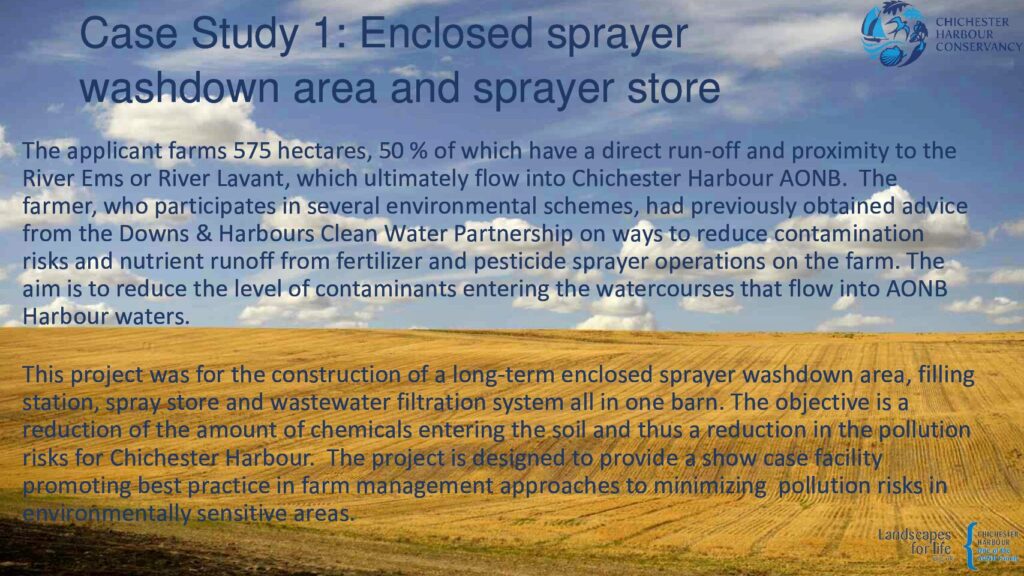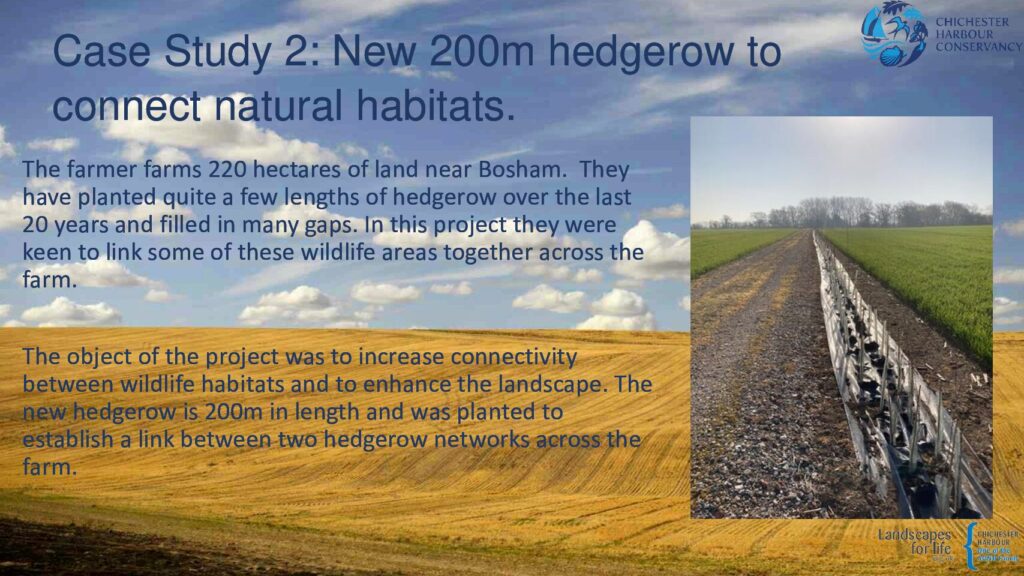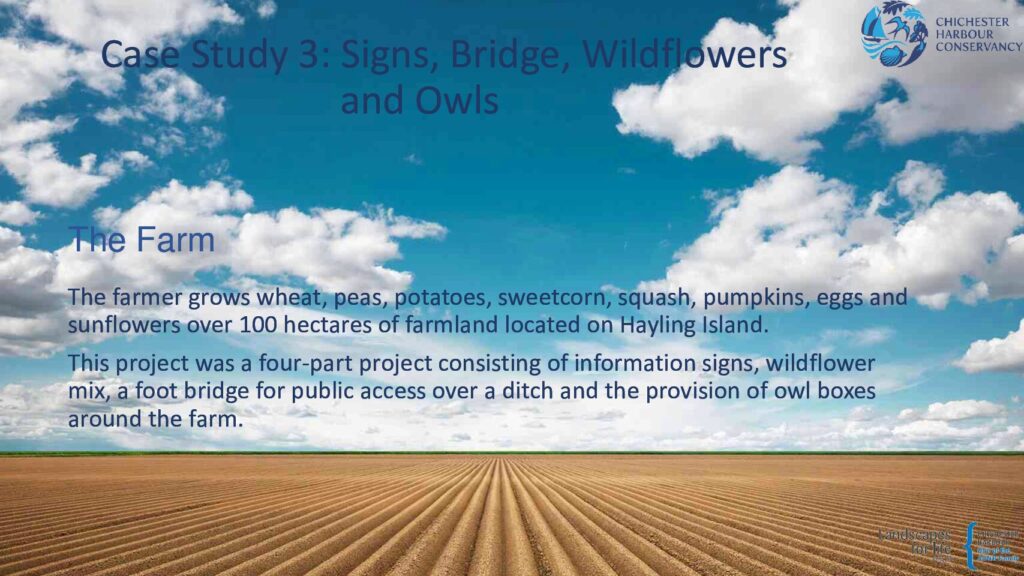There are 44 Protected Landscapes across England, covering 25% of the land area. Collectively, our family of National Parks and Areas of Outstanding Natural Beauty (AONBs) make an important contribution to:
| Climate | Delivering net zero with nature and nature-based solutions to help communities adapt to the unavoidable effects of climate change. |
| Nature | Playing a leading role in the delivery of the Nature Recovery Network and achieving the PMs commitment to protect 30% of land by 2030. |
| People | Providing a natural health service that will improve the nation’s public health and wellbeing through increased access to nature across all parts of society, as part of our green recovery. |
| Place | Creating centres of excellence and green innovation that are flourishing places to live and work, each with a strong identity and cultural heritage, and high recognition as attractive visitor destinations. |
The Farming in Protected Landscapes programme (2021-2025), launched by the Government in June 2021, helps farmers and land managers deliver new projects against these four key objectives.
Programme Summary
The Scheme, funded by Defra, has been a great success in the first two years to March 2023. As a result, the Programme, initially scheduled to run until March 2024, has now been extended for a further year to March 2025. In Chichester Harbour AONB, we allocated all our Year 2 budget to FiPL environmental Projects and are now actively looking for projects to support in Years 3 and 4.
We look forward to receiving your Expression of Interest. We will then contact you to discuss your project and send you an Application Form to complete.
You need to be a farmer or land manager in Chichester Harbour AONB to apply for a grant, or you need to be an organisation or individual collaborating with a farmer, or group of land managers. Involvement in the Programme will not prevent you entering into future Defra schemes. You can send us a grant application at any time. We are here to help you develop your project and secure support from the programme.
There are 5 steps to applying for a grant:
- Read all the guidance
- Submit an Expression of Interest
- Host a site visit from Conservancy staff
- Submit an Application Form and supporting documents
- Await the decision within 6-8 weeks
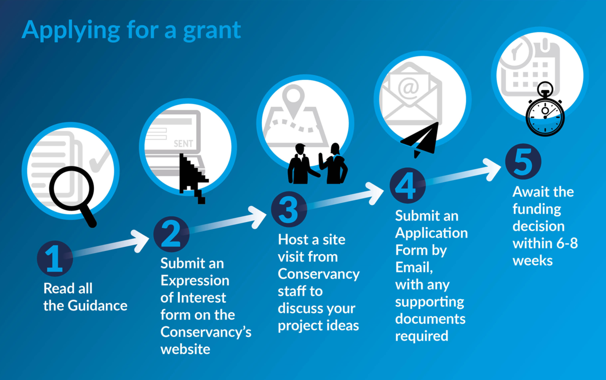
What are we looking for?
We are looking for one-off projects that meet one or more national goals for climate, nature, people, and place; and local priorities for Chichester Harbour AONB. You can find the local priorities in our Management Plan on pages 23-57.
National Goal 1: Climate
- More carbon is stored and/or sequestered
- Flood risk has been reduced
- Better understanding among farmers, land managers and the public as to what different habitats and land uses can deliver for carbon storage and reduced carbon emissions
- The landscape is more resilient to climate change
Examples of projects might meet this goal and support the local priorities in Chichester Harbour:
- Completion of a farm audit to determine the farm’s carbon footprint and development of a business plan to reduce carbon emissions.
- Enhancing flood-water retention through the restoration and reconnection of ditch systems to pond sites.
- Improving efficiency of farming-related water, carbon and nutrient use storage.
- Actions to improve soil health and minimise soil loss and implement regenerative farm practices.
- Projects that restore saltmarsh condition or create new areas of saltmarsh.
a) Feasibility studies and surveys along a coastal frontage to determine saltmarsh and habitat creation potential.
b) Creating a new permissive pass to encourage walkers off the foreshore and reduce trampling on the saltmarsh.
National Goal 2: Nature
- There is a greater area of wildlife rich habitat
- There is greater connectivity between habitats
- Existing habitat is better managed for biodiversity
- There is an increase in biodiversity
Examples of projects that might meet this goal and support local priorities in Chichester Harbour:
- Creating connectivity between habitats, including hedge planting.
- Taking unproductive land out of production to deliver combined nature benefits.
- Equipment that helps with wildflower grassland management, for example cut and collect mowers.
- Habitat enhancement projects for shorebirds and seabirds, providing high tide roosting and breeding sites.
- Planting of flower rich field margins or plots to increase habitat for pollinators and insects.
- Projects to enhance or reintroduce habitat for priority species within the harbour such as water voles.
- Projects to restore and enhance orchards.
- Sourcing small-scale management equipment to prevent soil compaction and damage to fields.
National Goal 3: People
- There are more opportunities for people to explore, enjoy and understand the landscape of Chichester Harbour AONB
- There are increased opportunities for more diverse audiences to explore, enjoy and understand the landscape
- There is greater public engagement in land management, for example through volunteering groups.
Examples of projects that might meet this goal and support local priorities in Chichester Harbour:
- Permissive paths that take people away from sensitive areas or farm operations.
- Improvements to rights of way to make access easier, for example surfacing works and replacing stiles with gates.
- Infrastructure to support educational visits or greater public engagement in land management and enable a wider audience to connect with nature.
- Equipment and training for a volunteer group to manage a site for conservation within the AONB.
- Parking improvements at a key site to provide safe access to popular walking routes and reduce congestion for visitors and for local residents.
- Collaborative workshops for farmers within the AONB for learning and sharing best practice.
National Goal 4: Place
- The quality and character of the landscape is reinforced or enhanced
- Historic structures and features are conserved, enhanced or interpreted more effectively
- There is an increase in the resilience of nature friendly sustainable farm businesses, which in turn contributes to a more thriving local economy
Examples of projects that might meet this goal and support local priorities in Chichester Harbour:
- Infrastructure to reduce run off from agricultural land into the harbour catchment streams and rivers.
- Surveys and technical equipment to assess soil health and reduce use of fertilisers through a more targeted approach.
- Growing native tree stock.
- Wildlife surveys to inform environmental management.
- Projects to restore historic features on a farm to enhance the historical value of the harbour.
- Supporting a locally branded farm product initiative which promotes links between the product and the landscape in which it is produced.
Developing your project
We are looking for a breadth of projects that support the national goals and the local priorities across the AONB and together with the surrounding catchment area, shown shaded orange on the map.
We are here to help you develop your project and secure support from the Scheme. We need to be confident as possible that you will achieve the programme goals with your project. It is therefore important that your project is well considered before you apply for a grant. We recommend seeking advice from us and others with experience of similar projects prior to completing your application. We can suggest people to talk to.
Your application will need to demonstrate that:
- your project is good value. You can show this by supplying three quotes (for items over £5,000) and/or comparing your costs to published rates e.g. countryside stewardship payment rates.
- you will undertake the work to a high standard. You can show this by providing detail on how you will do the work or by providing a locally or nationally recognised specification that you will use.
- you will be able to maintain the work for long term benefit. A management plan or business plan is the best way of showing how you will do this.
- your project will benefit Chichester Harbour AONB. Whilst we welcome applications from outside of the protected landscape, all projects must ultimately help to deliver the Chichester Harbour Management Plan.
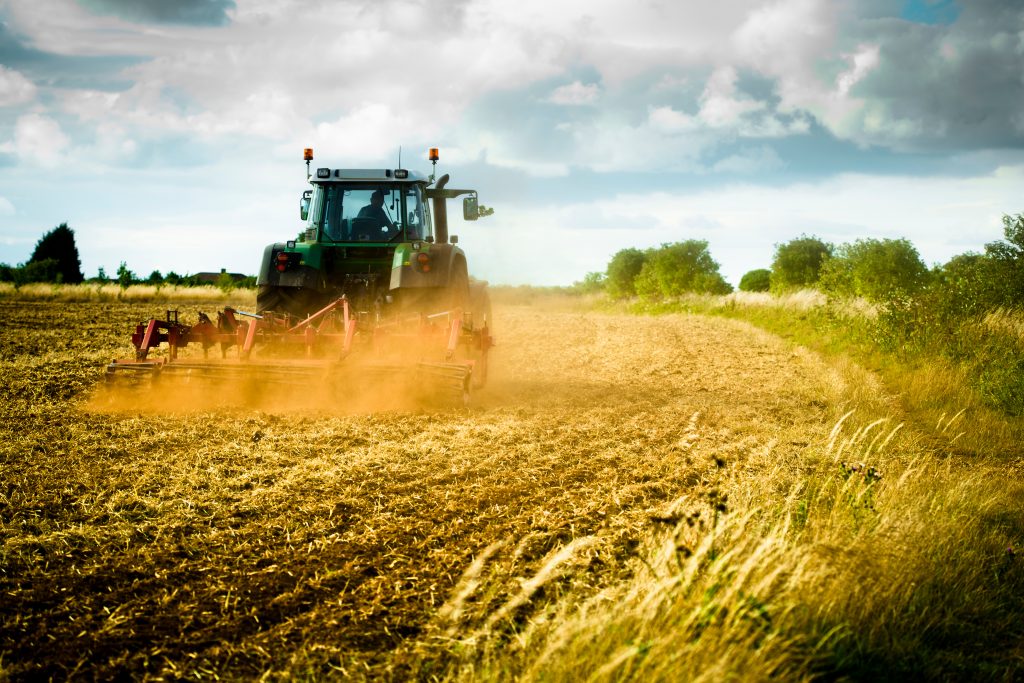
We understand that you may incur costs developing your project. We are therefore offering small grants for the costs of habitat and archaeological surveys; securing any permissions, licences, and consents; and producing management plans. We are unable to fund the costs of completing the application form.
We are keen to help you develop your project and secure support from the Scheme. Please contact us for advice on the programme and the local priorities, to discuss project ideas, payment rates and for any queries in relation to the application process.
Defra’s Guidance – Programme details
Visit the Government’s Farming in Protected Landscapes site for more detail on the programme, including information on the scoring system. We recommend you also read The Guide for Applicants.
We will send you an Application Form if we think your project may be suitable. We are here to help you develop your project and secure support from the Scheme.
Year One Case Studies
Local Assessment Panel
Most grant applications will be determined by the Local Assessment Panel (LAP), which is governed by a Terms of Reference and Constitution. Membership of the LAP includes Members of the Conservancy, Natural England, local conservation bodies, local farmers and land managers. The LAP will meet every 6-8 weeks at Eames Farm, Thorney Island. All applications requesting £10,000 or more will be presented to the LAP for a decision. Applications requesting less than £10,000 may be determined through a fast-track process in-between meetings of the LAP.
The membership of the LAP is as follows:
Cllr Pieter Montyn, Chichester Harbour Conservancy (landowner) – Chairman
Cllr Ann Briggs, Chichester Harbour Conservancy (landowner) – Vice Chairman
Angus Sprackling, Farmer (Thorney Island, Nutbourne)
Jennifer Walter, Accountant / Farmer (Nutbourne, Hayling Island)
Kate Bull, Natural England
Chets Modi, National Farmers Union
Sam Wilson, Farmer (Hayling Island)
Stephen Johnson, Friends of Maybush Copse
Thomas Monnington, Farmer (Sidlesham)
Andrew Gentle, Farmer (Birdham)
John Goodspeed, Havant Nature
Any future vacancies on the LAP will be addressed by an open recruitment process based on skills, knowledge and experience.
Past Meetings
09 November 2021
13 December 2021
17 January 2022
27 January 2022
28 March 2022
13 June 2022
26 September 2022
28 November 2022
13 December 2022
23 January 2023
